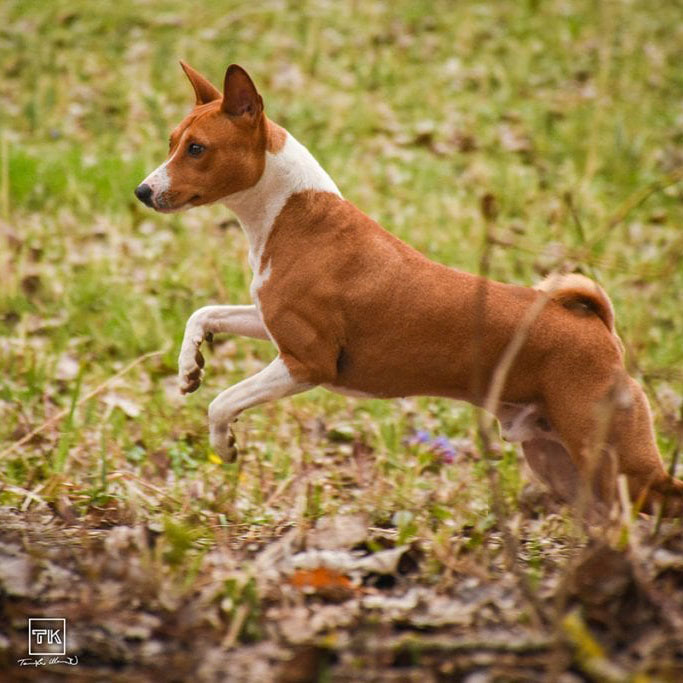Function
You really need to keep in mind that your Basenji was originally bred to be a hunting dog.
This means that when he sees any potential prey, his first instinct is going to be to hunt. This can cause him to spring into action at a moment’s notice. Chickens are birds and if you live on a farm, you will need to train your Basenji from the time that he is a puppy that the livestock on the farm is not an acceptable type of prey. Each dog is an individual and will react to potential prey in different ways. It’s always recommended that smaller farm animals and fowl must be kept in a safe place that is inaccessible to your Basenji.
Basenjis are known for being a very quiet breed; because they have flat larynxes, the dogs cannot bark, but they can be very noisy, making sounds that include yodels, whines, and screams. This is a great advantage especially if you live in an apartment or have sensitive neighbors. It is also convenient if you are to take your Basenji to some social place.
The silent hunter is not going to bark to frighten off an intruder. They do become alert and interested when friend or stranger approaches the home or if there are odd noises. People acting suspiciously will upset a Basenji. Many Basenjis will try to avoid a suspicious intruder. Some may happily greet an intruder while a few may try to protect their home. Do not count on a Basenji as a traditional guard dog.
Because of their silence when hunting the dogs are very often belled around the neck or loin.
Today we use GPS tracker.
The Basenji’s sense of sight and smell is amazing.
As they are very fast and agile they can catch and kill small animals like rabbits. With patience they can be taught to retrieve. Some puppies do this naturally; others will have no idea what is required. The greatest problem in training them for hunting is to get them to run in straight line instead of circling in their natural style.
It is marvelous to see one jump up and down in five-foot-high elephant grass, he almost seems to hover in the air at the top of his jump while he has a quick look round and scents the air: hence one of the African names, m’bwa m’kube m’bwaamwitu – the jumping up and down dog.
Like greyhounds and whippets, Basenjis use a double suspension gallop when running. When most dogs run, there’s generally at least one foot touching the ground at all times. But with galloping breeds like the basenji, there are two separate times when all four paws are off the ground. This gait helps the dog reach impressive speeds.
The Basenji is mischievous and energetic with a mind of his own.
He’s the kind of guy that will stick his nose into a project you’re working on because he has an inquiring mind. He’ll do his best to help when he sees you on your hands and knees in the garden. He may even take an interest if you’re on your laptop. Watch those paws though because if you’re not paying attention to him, basenji’s have been known to place their paws on the keyboard to get your attention.
You had better be smarter or at least sneakier than he is if you want to stay one step ahead of him.


